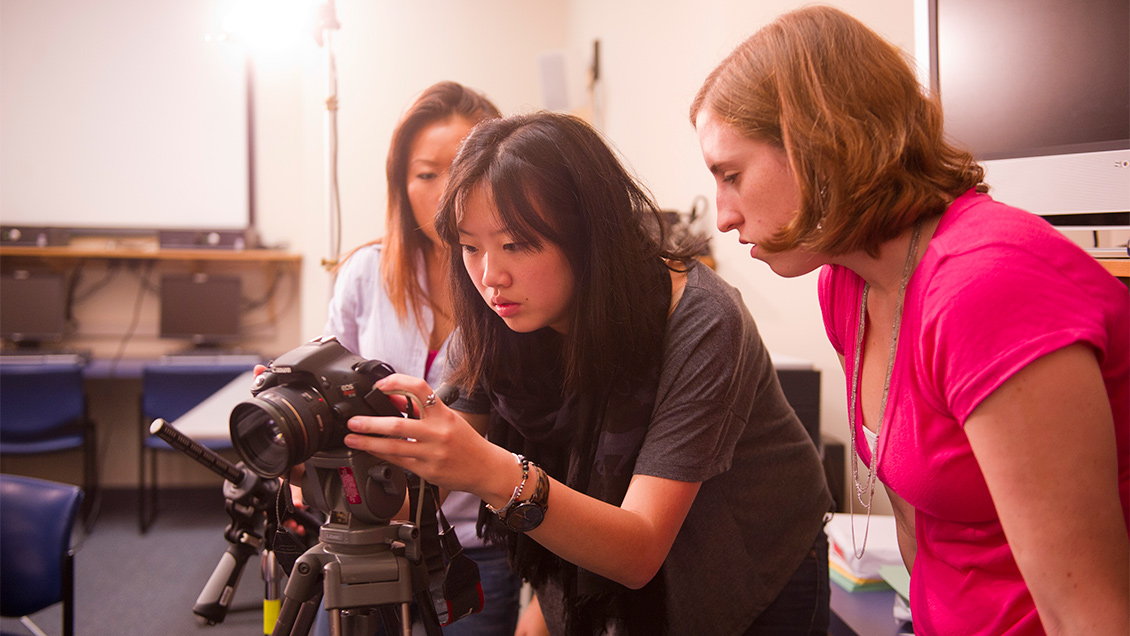Real World Productions at the College of Communication is an intensive semester-long field- and classroom-based experience for talented graduate and undergraduate students at Boston University. Taught by Sheila Sitomer, an award-winning producer and a professor in COM’s Film & Television department, Real World Productions provides students with an opportunity to put into practice what they have been learning in the classroom. Teams of students are created, usually four or five in a group. The goal is for each group to complete a student-run, client-driven production by the end of the school semester. Nonprofit and for-profit organizations seek out the energy, determination, and creativity of the Real World Production teams.
I have heard ecstatic feedback from board members and teachers who have seen your work. I have been highly impressed with the way that your team has taken notes and direction and provided material well beyond my expectations. The storytelling and the quality of the photography have been thoughtful and lovingly executed. You have been professional and courteous every step of the way. Whatever the highest grade your instructor can issue, you all have earned.
Matt Chapuran, Executive Director, Conservatory Lab Foundation
Timeframe for Real World Production Projects
For the fall semester, productions begin in early September and are completed by early December. For the spring semester, productions begin in mid-January and are completed by early May.
Process of Communication
Once a student producer is assigned to a project, the client and student teams will connect by phone, email and/or text. Client meetings with the students are a must. As Real World does not have an official office, those meetings will usually be at the client’s office, a BU classroom, a mutually convenient location, or by video conferencing.
Real World Productions Process
Over the years, Real World Productions has learned that certain basic requirements are needed in order for the production to work and for the client to be pleased with the final product.
- Students and clients need to be clear about long and short-term goals of the production. They should be defined in writing early in the process through a client application (below) and by providing any additional materials that will help students to create the production.
- The primary focus and mission of the organization must be specified before shooting or production begins. It’s best if this is in writing.
- Both client and students need to be clear about the parameters of the production.
- The client must either be THE contact person or designate ONE person from the organization who is the “yes” person; the one person who can say yea or nay to production goals, needs, etc., and will be available throughout the production process. This person could be the executive director or a staff person, but it must be clear to everyone (client and students) at the start of the production who this person is.
- No project will be accepted unless it can reasonably be completed during one semester.
- A fee of $500 must be submitted by the client before production begins. While students are not paid for their services, this fee helps BU’s Real World Productions purchase and maintain technical equipment that is up to industry standards.
- The $500 fee does not cover additional expenses specific to the client’s project such as taxis and other travel, props, location fees, actors, etc.
- The students and client will meet at the start of the semester to determine production needs.
- Students will then submit a budget estimate to the client for approval. These expenses tend to run from $175 to $1,000, depending largely on travel needs. Every project has different production requirements.
- The client must agree to cover the $500 Real World fee PLUS the agreed-upon budgeted expenses.
- Download the Application to work with Real World Productions
- Make a payment to Real World.
Student Teams
Undergraduate and graduate students chosen to participate in Real World Productions have taken Video/Film Production courses. Many have taken additional courses in production, post-production, and producing.
Completed Video Projects
Clients own the completed video and the copyright. It is legally theirs, but Real World students and Boston University will be able to use the produced videos for online resumes, submission to film festivals and competitions, and on the Boston University, College of Communication and Real World Productions websites. See our past work.
For Additional Information
For additional information or clarification regarding projects please email Professor Sheila Sitomer at ssitomer@bu.edu.
